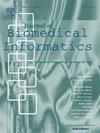用于预测癌症药物敏感性和发现新型疗法的新型机器学习模型。
IF 4
2区 医学
Q2 COMPUTER SCIENCE, INTERDISCIPLINARY APPLICATIONS
引用次数: 0
摘要
背景与目的:及时治疗对癌症患者至关重要,因此尽早给予适当的治疗是很重要的。由于个体对特定药物的反应不同,这是由于他们独特的基因组图谱,我们的目标是利用他们的基因组信息来预测各种药物对他们的影响,并确定最佳治疗方案。方法:提出了一种新的多任务学习方法——kernel - ized Residual Stacking (KRS),并将其应用于基于基因组数据的抗癌药物反应预测。通过利用癌症药物敏感性基因组学(GDSC)研究和癌症细胞系百科全书(CCLE)研究,我们证明了KRS优越的预测性能,优于流行的竞争对手。对KRS选择的特征基因进行下游分析,以发现新的治疗方法。结果:我们使用了两项基因组研究,表明KRS在预测药物敏感性方面优于一些流行的竞争对手。通过对KRS选择的特征基因进行下游分析,我们发现PI3K-Akt通路可以改变药物的敏感性,其表达与枢纽基因ERBB2呈正相关。我们发现了八个基于这些特征基因的新型小分子,它们可以与抗癌药物开发出新的联合疗法。结论:KRS预测性能优于竞争对手,选择了与药物敏感性高度相关的特征基因。通过对KRS特征基因的研究,发现了新的生物学结果。本文章由计算机程序翻译,如有差异,请以英文原文为准。

Novel machine learning model for predicting cancer drugs’ susceptibilities and discovering novel treatments
Background and Objective
Timely treatment is crucial for cancer patients, so it’s important to administer the appropriate treatment as soon as possible. Because individuals can respond differently to a given drug due to their unique genomic profiles, we aim to use their genomic information to predict how various drugs will affect them and determine the best course of treatment.
Methods
We present Kernelized Residual Stacking (KRS), a new multi-task learning approach, and use it to predict the responses to anti-cancer drugs based on genomic data. We demonstrate the superior predictive performance of KRS, outperforming popular competitors, by utilizing the Genomics of Drug Sensitivity in Cancer (GDSC) study and the Cancer Cell Line Encyclopedia (CCLE) study. Downstream analysis of feature genes selected by KRS is conducted to discover novel therapies.
Results
We used two genomic studies to show that KRS outperforms a few popular competitors in predicting drugs’ susceptibilities. Through downstream analysis of feature genes selected by KRS, we found that the PI3K-Akt pathway could alter drugs’ susceptibilities, and its expression correlated positively with the hub gene ERBB2. We discovered eight novel small molecules based on these feature genes, which could be developed into novel combination therapies with anti-cancer drugs.
Conclusions
KRS outperforms competitors in prediction performance and selects feature genes highly correlated with drugs’ susceptibilities. Novel biological results are found by investigating KRS’s feature genes.
求助全文
通过发布文献求助,成功后即可免费获取论文全文。
去求助
来源期刊

Journal of Biomedical Informatics
医学-计算机:跨学科应用
CiteScore
8.90
自引率
6.70%
发文量
243
审稿时长
32 days
期刊介绍:
The Journal of Biomedical Informatics reflects a commitment to high-quality original research papers, reviews, and commentaries in the area of biomedical informatics methodology. Although we publish articles motivated by applications in the biomedical sciences (for example, clinical medicine, health care, population health, and translational bioinformatics), the journal emphasizes reports of new methodologies and techniques that have general applicability and that form the basis for the evolving science of biomedical informatics. Articles on medical devices; evaluations of implemented systems (including clinical trials of information technologies); or papers that provide insight into a biological process, a specific disease, or treatment options would generally be more suitable for publication in other venues. Papers on applications of signal processing and image analysis are often more suitable for biomedical engineering journals or other informatics journals, although we do publish papers that emphasize the information management and knowledge representation/modeling issues that arise in the storage and use of biological signals and images. System descriptions are welcome if they illustrate and substantiate the underlying methodology that is the principal focus of the report and an effort is made to address the generalizability and/or range of application of that methodology. Note also that, given the international nature of JBI, papers that deal with specific languages other than English, or with country-specific health systems or approaches, are acceptable for JBI only if they offer generalizable lessons that are relevant to the broad JBI readership, regardless of their country, language, culture, or health system.
 求助内容:
求助内容: 应助结果提醒方式:
应助结果提醒方式:


